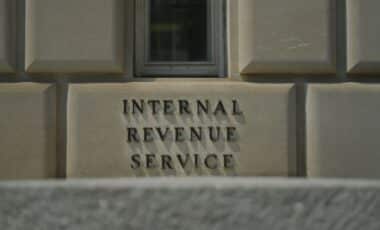The latest UK Budget, featuring substantial tax increases through higher employer national insurance contributions (NICs), has raised significant concerns about its economic impact. Analysts warn of declining consumer confidence, slower wage growth, and reduced disposable incomes, which are expected to dampen economic activity in 2025. Reports from Goldman Sachs, The Guardian, and S&P Global Market Intelligence emphasize the growing challenges faced by households and businesses as these fiscal measures ripple through the economy.
National Insurance Hike and Wage Pressures
One of the most contentious measures in the Budget is the increase in employer NICs, aimed at generating £20 billion for the Treasury. According to Goldman Sachs, this move will likely result in employers passing on the additional costs through slower wage growth and higher prices for goods and services. Analysts at the investment bank wrote: “We expect consumer spending growth to moderate in [the second half of] next year, as real disposable income growth falls back. This partly reflects slowing real wage growth; we expect private sector pay increases to cool, partly because of the employer NI increase being passed on to consumers.”
This aligns with findings from S&P Global Market Intelligence, which noted a marked dip in consumer confidence in November. Chris Williamson, the firm’s chief business economist, remarked, “A key concern going forward will be the labor market. Rising incomes and busier workplaces have underpinned much of the improvement in consumer sentiment over the past two years, but job security is showing signs of waning. Any intensification of job worries, spurred perhaps by the recent measures announced in the budget, including higher employer national insurance contributions, could result in a further loss of consumer confidence. This would likely in turn hit consumer spending and economic growth.”
Frozen Tax Thresholds Exacerbate Financial Strain
The challenges facing UK households extend beyond NICs. The continued freeze on income tax thresholds, announced by then-Chancellor Rishi Sunak in 2021 and extended until 2028-29 by current Chancellor Rachel Reeves, is another key factor contributing to what economists call “fiscal drag.” As wages rise with inflation, more earners are being pushed into higher tax brackets, effectively reducing their disposable income. Goldman Sachs emphasized that this phenomenon, coupled with rising living costs, will have a chilling effect on the economy.
Adding to the pressure is a noticeable decline in consumer sentiment, a trend highlighted by The Guardian, which reported a sharp drop in S&P Global’s consumer sentiment index. The index fell from 47.3 in October to 46.9 in November, indicating contraction.
Economic Outlook for 2025 and Beyond
Looking ahead, economists predict that these fiscal policies will dampen economic growth in the latter half of 2025. Deutsche Bank recently warned that the increase in employer NICs, combined with other budgetary measures, could result in over 100,000 job losses, compounding the economic challenges. Meanwhile, Goldman Sachs anticipates a “mini-boom” in the short term, driven by increased public sector pay and higher Whitehall budgets. However, this momentum is expected to fade as wage growth slows and consumer spending declines.
Global uncertainties may further complicate the UK’s economic landscape. Trade tensions with the US, even in the absence of severe tariffs, could weigh on demand and reduce growth. Analysts highlighted the spillover effects of eurozone trade disruptions, which could add to the UK’s economic woes. Additionally, the possibility of higher energy prices remains a looming risk, particularly if geopolitical disputes escalate.
Balancing Fiscal Responsibility and Economic Growth
The UK government faces a delicate balancing act as it seeks to address fiscal challenges while minimizing economic disruptions. The decision to maintain frozen tax thresholds and raise NICs reflects a commitment to shoring up public finances, but these measures come at a cost. The ongoing strain on household finances, coupled with waning consumer confidence and slowing wage growth, underscores the need for targeted policies that support both workers and businesses.
Chris Williamson summed up the situation succinctly: “The tough climate facing households has prompted a growing belief that interest rates will fall again, which should help alleviate some of the financial pressure on borrowers. However, the fact that confidence fell in November despite the Bank of England cutting interest rates suggests lower borrowing costs alone may be insufficient to turn the tide and lift sentiment.”
As the UK braces for these economic headwinds, the government’s ability to navigate these challenges will determine the resilience of households and the broader economy in the years ahead.









